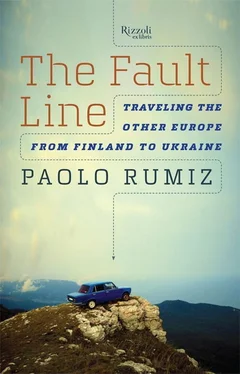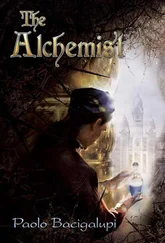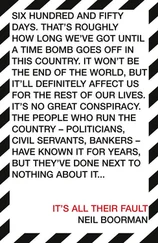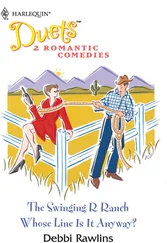Stars. Dinner of cured ham and cheese by the hearth in the inn. Above it, the room looks out on the river; that’s the only sound I can hear. The ideal place for a good rest, but I can’t get to sleep. Monika is sleeping so deeply, it seems she’s on another planet. I, on the other hand, suddenly feel crushed under the weight of all the things we’ve seen. Too many. I have no idea why this is happening to me here and now, at the center of the continent. It’s as though all the notes I’ve taken in the last month have fallen on me at once. A month as long as a year. Six full notebooks. How will I manage to decipher them after all this time? I’ve never made a journey so dense with encounters, and all that lived experience turns into weight, ballast. I’ve been working meticulously, maybe too much, like a botanist or an entomologist, gathering, recording, reproducing, investigating with a magnifying glass.
Just before six, just to pass the time, I start rummaging through my pack and discover that my rigid blue notebook that I’ve been filling with drawings isn’t there. I look again; nothing. Nothing, nothing. A month’s work up in smoke. I’d drawn the little Belarusian houses, Lithuanian beer labels, Norwegian road signs, the Cyrillic menus from the inns in Murmansk. I curse, dripping with sweat. The idea of going back up into the mountains above Lviv without a car is simply crazy; plus, I don’t have enough time left for such a long detour. I’m desperate. But just as I’m getting ready to resign myself, out comes the damn thing from a side pocket as dark as night, and for a second, its seventy drawings seem to shine in the semidarkness like the figures of a magic lantern.

12. DNIESTER
“LA-LA-LAAA, / It won’t bring us luck / This stolen night….”
The descent from the Carpathians to the plains stretching south to the Black Sea begins on a bus full of sleeping peasants and angelic children, with OUR FATHER printed large in Cyrillic on top of the first aid kit and a Slavic sound track capable of killing you with a fatal attack of nostalgia.
“You can’t build / Your happiness / On the suffering of others….”
Behind the wheel is a stocky driver in a muscle shirt who identifies me right away as Italian and tells me that he picked fruit in the fields of the Po Valley near Brescia.
“Did they pay you well?”
“So-so. Four euros (six dollars) an hour. Lot of work, not a lot of pay.”
“And now?”
“Now, driver. Now also not a lot of pay… but at least I’m home.”
We start into a series of shallow, parallel valleys, made from the slightest of rising slopes and separated by small rivers, where the dominant colors are the yellow of the wheat and the red of the poppies. In the scorching-hot clouds of dust, the bus stations turn into caravanserais. The one in Kolomyia looks like the round heart of a daisy whose petals are the shelters, shooting buses out in every direction. The food kiosks are the European outposts of the bazaar, with an irresistible aroma of burek , the thin, flaky pastry filled with cheese that I discovered in the Balkans. My gluttony won’t allow me not to bring back on board a greasy paper bag full of them, and good manners oblige me to share them with my neighbors.
But the wonder of wonders is the bus station in Chernivtsi, the Czernowitz of the Yiddish world, the world capital of klezmer music. Around the bulldozed lot, buzzing with the whirling fan belts of hundreds of buses, is an endless series of kiosks whose pots are simmering with zurek , the local soup, bubbling over with mountains of green peppers, onions, and poultry from the valley of the Prut, the river that runs southeast to form the border between Romania and Moldova.
Amid the fragmentation of its borders, it appears that the bus is the only means of transport able to hold together the pieces of what used to be the Soviet Union.
At the head of the line, my bus empties out in the blazing heat of midday: the passengers come from distant places, but they know exactly where to go, what to buy, and from whom.
Chernivtsi is an interchange of cultures, food, and music populated by mild-mannered people at peace with the world. Among the merchants and the chickens, a pope walks arm in arm with his wife. He is satisfied in his yellow-gray tunic, ponytail, black beard, and vest. She’s happy in her chaste long skirt and coquettish longsleeved blouse. All around are Cossack butchers with cascading mustaches, buxom Moldovian farm women, vociferous Romanians selling strings of braided onions, bony-faced Carpathian natives with baskets of mountain herbs and greens. The only missing player in this chaotic scene is the Hasidic Jew with his wide-brimmed black hat, black long coat, and curls down to his shoulders. He’s no longer present. But something of his presence has remained in the air, permeating the market with a special kind of meekness.
In Chernivtsi, we’re supposed to get the train for Moldova in an attempt to cross it and head to Odessa. But the schedules are impossible, and we run the risk of missing the ferry for Istanbul. After the fall of the USSR, the train lines have been shortened, and the waiting times between trains would discourage even the most stubborn of slow travelers. So we look for a bus that will take us to Kamianets-Podilskyi, a jewel of a city we have heard great things about in Warsaw and where we could connect with the train line for the Black Sea.
We have two hours before departure, and because—as always—it’s during stopovers that things happen, we end up being part of an unforgettable scene.
There is a restaurant on the edge of the market, with tables outside under the plane trees. We’re the only customers. The waitress passes the time sitting at another table with a muscle-bound guy with a shaved head in a white T-shirt.
While we’re waiting for our food, two cars drive up and stop right in front of the door, next to a bus stop. A stocky forty-year-old with the face of a boxer gets out of the first car. The guy sitting next to the waitress gets up and goes over to join him on the other side of the street. They sit down on a bench in the shade of a tree and launch into an animated discussion in low voices.
Suddenly, fists are flying and the two fall to the ground under a billboard advertising the modular kitchens by Burzhua—bourgeois—the word condemned by communism. The older man is stronger; he must be an ex-boxer. He gets ahold of the kid, puts him back down on the bench in an almost fatherly manner, and tries to get him to listen to reason, holding him still with his knee as a sign of domination. Things seems to have calmed down, but appearances are deceiving. The guy with the boxer’s face is not a father. He’s a boss. And he suddenly lets fly a punch out of nowhere, a professional blow, landing just above the left eye of the other guy, whose face becomes a mask of blood.
Just then, his partner gets out of the second car to check things out, but the partner who’s busy settling accounts orders him to get back in the car. He’s not worried at all about being seen; he’s the boss of the territory. People go by and act as though everything’s normal. Even the waitress, blanched with fear, doesn’t do a thing for her boyfriend. So I get up and move closer to them to see if they’ll stop. I sit on a bench ten feet away, but they just keep at it as if I don’t exist.
They talk and I can distinguish every word. If I knew Ukrainian I would understand everything. The scene continues as though it were a film. After a while the bloodied young man calms down, and with a half grimace, he shakes the hand of the older man, who gets back in his car and leaves, followed by the second car. Only then does the beaten man get up, take off his white T-shirt, use it as a bandage to stop the bleeding, and then go off to a side street to lick his wounds.
Читать дальше













